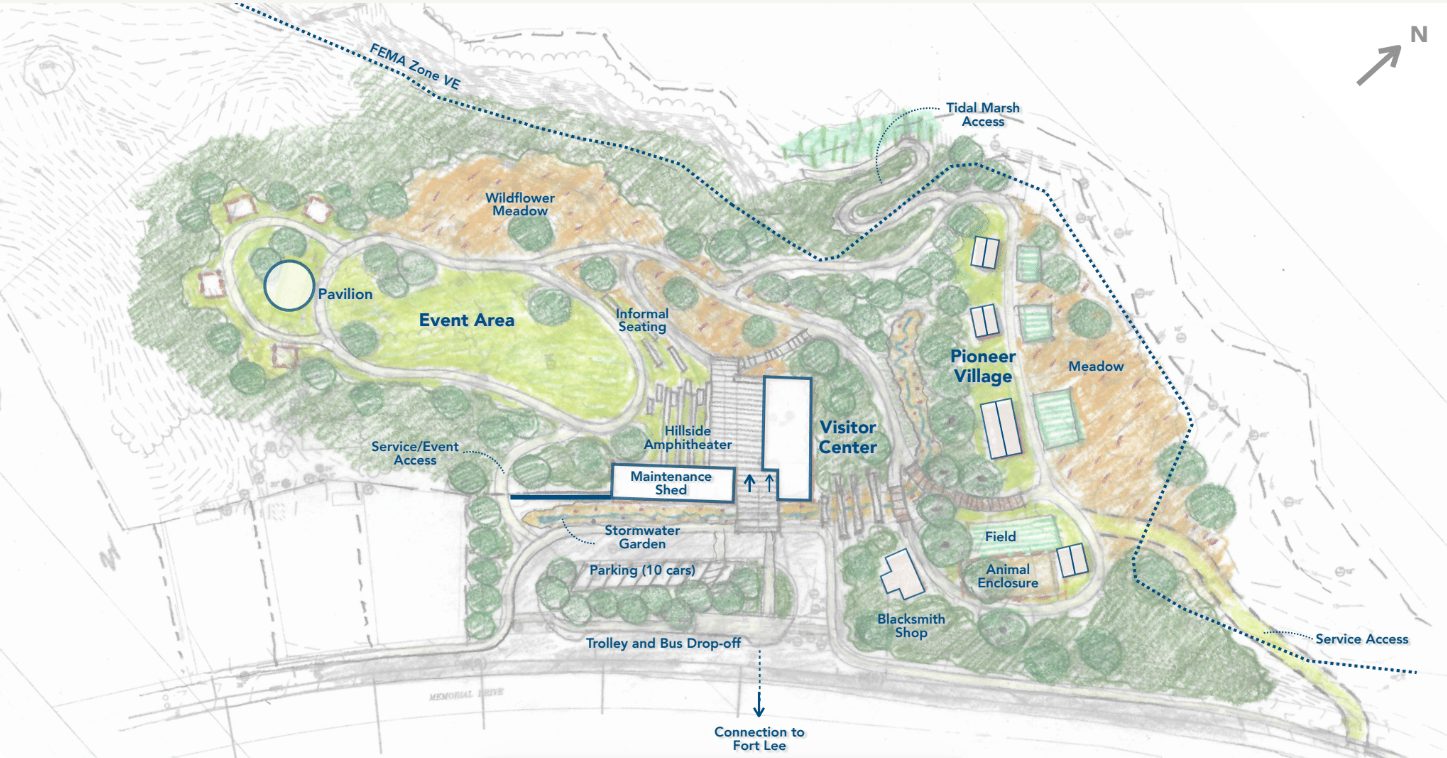SALEM ― The city launched a website for the proposed Pioneer Village signature park project to further engage the community and provide information on the project’s progress, while they await the decision of the Historical Commission.
The project website contains presentations, an FAQ, timeline, updates, a place to ask questions and more. The city plans to add additional information and plans as they are developed.
“I would like to thank the many historians, preservationists, landscape architects, engineers, and community stakeholders who have been helping to advise and guide the city on the development of this momentous project,” said Mayor Kimberley Driscoll. “Of all our signature park projects, the Pioneer Village effort most clearly reflects our Salem 400 goals by preserving and improving a treasured public space for future generations, while also elevating the indigenous history of Salem, investing in sustainability and resiliency, and improving accessibility. I invite all Salem residents to explore the new website, get involved in this landmark initiative and, ultimately, join us in 2026 when we celebrate its completion.”
The project, which recommends moving structures of the Pioneer Village from Forest River Park to the Camp Naumkeag site situated between Collins Cove and Dead Horse Beach, was set in motion in 2020. The Pioneer Village is very close to sea level at its current location and experiences partial flooding during storms.
Flood maps show that most of the current site would be flooded in case of a Category-1 storm, and climate change is accelerating this threat. The new site would incorporate resiliency elements as well as expand the area and topics of this historical interpretation with upgraded accessibility and other modern codes.
The city plans to include more representation and educational opportunities about the area’s indigenous history and the Massachusett tribe into the new Pioneer Village. The Massachusett tribe is determining in what form they should be represented within the Village.
In addition, the new signature park provides an opportunity for preserving and raising interest in the historic Fort Lee site.
The city timed completion of the Pioneer Village signature park project to Salem’s 400th anniversary in 2026. Antiquarian Georges Francis Dow designed the Pioneer Village in 1930 as a stage set for a play which celebrated the 300th anniversary of the city’s founding. After the celebration ended, the structures were opened to the public as part of an interpretive museum, one of the first of its kind in the U.S.
The Pioneer Village is actually far from the original 1626 settlement location which used to be where downtown Salem is now. Relocation would include moving the four structures that are original to the Village’s 1930 construction and replicating their relative locations to each other in the new proposed location.
The Camp Naumkeag site was created for the treatment of tuberculosis patients in 1910. The initial village consisted of tents that were replaced by seasonal wooden structures around 1919.
The city would like to recognize the importance of Camp Naumkeag in its history and public health in the new Pioneer Village signature park, the project’s website says. However, it is proposing to demolish the existing structures in order to create an entry point into the park. These structures do not have foundations or heating, don’t meet current code requirements for access, fire safety, sanitation, etc. and would require significant upgrades otherwise.
The Salem Historic Commission has not yet made a decision about the demolition after two robust discussions with ample commentary from the public at its regular meeting on Nov. 3 and at a special meeting on Dec. 8.
At the Nov. 3 meeting, Salem Historic Commission Chair Larry Spang said the demolition delay ordinance has recently been revised and is valid for one year. Margaret Minor Wood, consulting project manager working with the city of Salem, said that although the project design is at a conceptual level, the approval of demolition is critical to move forward because phase one of the project will include onsite work to establish accessible paths, relocation of buildings, and making the landing site/parking.
Wood anticipated that the design will take nine to 10 months and construction will last up to six months. The first phase of the Pioneer Village signature park project will be financed by the city, including proceeds from Pioneer Village admissions and funds from the Mayor’s Signature Parks Bond Bill. The construction of a visitor’s center has not been funded yet and the site has been designed to function without one until the city is able to secure the funds.
The website for the proposed Pioneer Village signature park project can be found at www.salem.com/pioneervillage.

